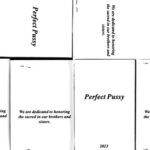Every day, the internet delivers unexpected treasures, and recently, a random online journey led me back to a song from my past: “When Will I See You Again” by The Three Degrees. It’s a tune that, on the surface, seems simple, yet it holds a surprising emotional depth and a lasting legacy. Let’s delve into why this song, and its central question, continues to resonate decades later.
The song itself isn’t complex. It’s built upon a foundation of lush orchestration – strings, horns, and layered vocals – creating a signature sound of the era. The lyrics are repetitive, almost childlike in their directness, posing a series of yearning questions:
When will I see you again?
When will we share precious moments?
Will I have to wait forever?
Or will I have to suffer and cry the whole night through?When will I see you again?
When will our hearts beat together?
Are we in love or just friends?
Is this my beginning or is this the end?
When will I see you again?
Reading these lyrics alone, one might find them overly simplistic or even demanding. If imagined as spoken directly to another person, they could appear clingy or obsessive. But the true power of “When Will I See You Again” lies in shifting perspective.
What if, instead of a direct address, the song is an internal monologue? This interpretation transforms the narrator into a figure of heartbreak, not necessarily possessiveness. They are singing about a lost love, expressing the universal pain of separation and longing. Suddenly, the questions become deeply relatable, reflecting a vulnerability we all understand. This shift in perspective unlocks the song’s emotional core and explains its enduring appeal.
This idea of the song as an expression of loss was highlighted in a conversation with Bono of U2. In the book Bono on Bono: Conversations with Michka Assayas, Bono recounts a powerful moment during U2’s PopMart tour in 1997 in Nuremberg, Germany. Reflecting on the emotional weight of performing in the Zeppelinfeld, a stadium with historical ties to the Third Reich, Bono described how musician Howie B chose to begin his DJ set with “When Will I See You Again.”
What song would you have sung had you been onstage that day?
“When Will I See You Again?”—the Three Degrees.
How does it go?
[sings] When will I see you again? De-de-de-de-de…/When will we share precious moments? It’s a song about loss. That song can bring you to tears. It’s a very strange course of events. We played in Nuremberg on the PopMart Tour in August 1997. They had marked out an area. There’s a stadium, the Zeppelinfeld, which is associated with the Third Reich. It’s an Albert Speer building. There was some controversy about us playing there. And I remember thinking: No, we should never be afraid of a building. And if people are so scared of it, paint it pink or something like that. Howie B, my great friend, was deejaying there. He said to me: “I’m not sure I want to do this.” I said: “Well, you don’t have to if you don’t want.” But he went on and started his set by playing the Three Degrees’ “When Will I See You Again?” It was just the most remarkable thing to see this joyous jazzman with tears down his face, decades later, mourning people of his own ethnic group that he’d never met, but feeling it. I really felt this song just chase the devil away. [sighs] Because you should never think about these things on a grand scale: these are families, and sisters and brothers and uncles.
[source]
Bono’s anecdote underscores the song’s ability to tap into universal feelings of grief and longing, transcending personal experience and connecting with collective emotions.
While songwriters Gamble and Huff may have been commercially driven, aiming to create hits, “When Will I See You Again” achieved something more profound. Released in 1974, it became a global phenomenon, reaching the top of the charts and becoming synonymous with the smooth, sophisticated “Philly Sound.” It even played a role in the burgeoning disco era, showcasing how a song with heartfelt lyrics could find massive mainstream success.
For me, personally, the song’s resurgence in my mind is intriguing. I don’t recall any specific attachment to it from its initial release. Growing up in South Jersey, I was immersed in Philadelphia radio, both AM and FM, and the music scene it fostered. The Three Degrees, quintessential representatives of the “Philly Sound,” were local heroes. Their earlier hit, “TSOP (The Sound of Philadelphia),” was inescapable, even becoming the theme song for Soul Train. Therefore, “When Will I See You Again” was simply part of the sonic landscape of my youth, likely heard multiple times daily throughout its chart reign.
The question then becomes: why does this song resonate so strongly now? Perhaps it’s nostalgia, a bittersweet reflection on a time perceived as simpler or more innocent. For many, the early 1970s might represent a period before significant life challenges or losses. In my own case, 1974 might symbolize the end of adolescence, a time before the complexities and heartaches of adulthood fully unfolded.
Whatever the reason, “When Will I See You Again” has unexpectedly captivated me. Its simple question, imbued with yearning and emotion, continues to echo. Perhaps writing about it will finally release its hold, or perhaps it’s a song meant to linger, reminding us of the universal human experience of longing and the hope of reunion.
Fun Fact: The Three Degrees held a special place in the heart of British royalty. They were reportedly Prince Charles’ favorite group and even performed at Buckingham Palace. They were also among the few American guests invited to his wedding to Lady Diana Spencer, earning them the playful media nickname “Charlie’s Angels.”
[

